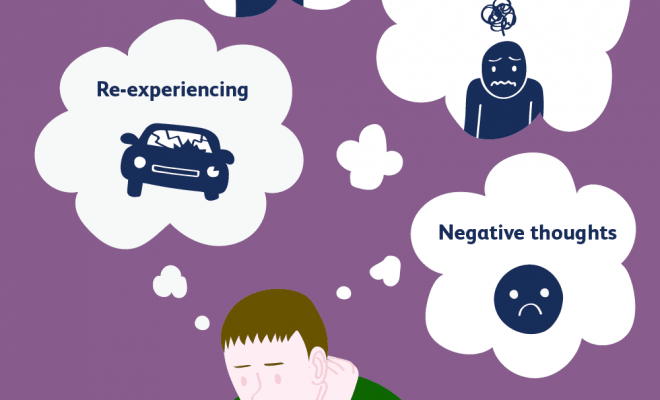
PTSD Symptoms: How To Spot the Signs of Post Traumatic Stress Disorder
PTSD Symptoms: How To Spot the Signs of Post Traumatic Stress Disorder
Post-Traumatic Stress Disorder, also known as PTSD. Happens to people after they suffer a traumatic event that haunts them even after years of the event. The PTSD leads to feelings of fear, shock, helpless, anxiety, depression or loneliness.
PTSD symptoms are mental disorders that can be diagnosed right after the event or after months and years of the traumatic event. Signs of PTSD are tough to identify, especially, when it is just happening in your mind. Some people mix it up with depression or anxiety, however, you need to understand that symptoms of PTSD are different. It can affect your relations at home or work and change the way you think and deal with situations. Recognising PTSD symptoms: how to spot the signs of post-traumatic stress disorder.
Reasons for Post-Traumatic Stress Disorder
If you have ever experienced killer terrifying events or escaped through horrifying situations; these memories can make home in your mind and you fear the experience repeatedly. It can be a terrifying car accident, an earthquake, a tornado taking lives in front of your eyes, some domestic violence in your area, loss of your loved ones or anything that is unexpected out of your life. Below are some other reasons that may cause PTSD symptoms within you.
- Childhood or domestic abuse
- Rape, physical or sexual assault
- Sudden death or loss of a loved one
- Serious car or plane crashes taking lives
- Serious accidents with ripped off bodies crushed in blood
- Traumatic events at work including job loss, humiliation or termination
- Experiencing natural disasters like earthquakes, tornadoes or hurricanes
- Serious health issues, like cancer or AIDS or long-term hospitalization
- Witnessing bombarding at war or conflict
- Miscarriage or loss of a baby after birth
- Terrorist attacks, theft or house arrest
- Witnessing a murder or threat of life
- Kidnapping, rape or brutal attacks
- Physical or mental torture
Signs & Symptoms of PTSD
There can be various seen or unseen symptoms of PTSD. Some can realize such a traumatic disorder and help you cope with the situation while others may laugh and ignore your sufferings.
Intrusion Symptoms
- Nightmares of being in the same events
- Flashbacks or sensation of experiencing the event again
- Fearful thoughts of traumatic events
Avoidance Symptoms
- Hiding or not sharing anything about the traumatic event
- Avoiding situations or person that reminds you of the event
Symptoms that affect the thought process and mood
- Insomnia – Sleepless nights
- Hypersensitive about possible threats
- Feeling depressed, tensed or anxious
- Irritating and angry explosions
Arousal and reactivity symptoms after a traumatic event
- Low interest in life
- Guilty feelings and blame yourself
- Inability to remember all the aspects of the event
- The feeling of depression, phobias, and anxiety
- Feeling separated or divided from others
- Emotionally and mentally insensitive
- Hard to concentrate
Physical Traumatic Symptoms
Physical traumatic symptoms may include symptoms like; extensive sweating, body shaking, severe headaches, regular dizziness, stomach aches, and pains, or chest pain at times. Your immune system gets weaker and you get prone to frequent infections. You may also suffer from sleep disorders that can result in tiredness or other disorders.
Symptoms in Children
PTSD symptoms may have a worse impact on children. The symptoms may include bedwetting even if they know how to use the bathroom, inability to speak properly, being insecure with an adult or so. There are kids who may have experienced sexual abuse and they grow signs of PTSD.
These PTSD symptoms may include fear, sadness, anxiety, or isolation with aggressive behaviour. They grow a low sense of self-worth and display unusual sexual behaviour or may hurt themselves. Teenagers may indulge themselves in the misuse of drugs or alcohol.
Self-help Tips
There are a few self-help tips that you may practice. Mentally coping up with the situation is the best way to start with. You will need to accept the impact of the event and take precautionary measures to improve the situation.
Here are a few tips that you can try if you experience PTSD symptoms.
- Challenge and ignore your feeling of helplessness.
- Reach out to your friends and family members to seek help.
- Show positiveness to PTSD treatment with a healthy routine.
- Gradually try to forget things by diverting your mind to other activities.
- Be confident about the ability to cope up with ill memories.
- Feel less bothered about the symptoms of PTSD.
There are a few other practices that you can try to help yourself.
- Realize and accept that time heals everything.
- Find someone to disclose your pain and share a shoulder.
- practice meditation, relaxation, deep breathing to ease your mind.
- Indulge yourself in some physical exercises like swimming, trekking, or yoga.
- Spend time with someone who has been through the situation and recovered well.
- Distract your mind in soulful and cherishing moments with happy people.
- Agree that anyone can be a victim of PTSD around you.
- Listen to some calm music and be close to nature.
Symptoms of PTSD are easy to identify but the realization and acceptance of the situation is a task. If you have experienced a traumatic situation and recovered well, you are a warrior and can deal with any tough situation in the future. Just cope with the time and involve yourself in activities that please you.














